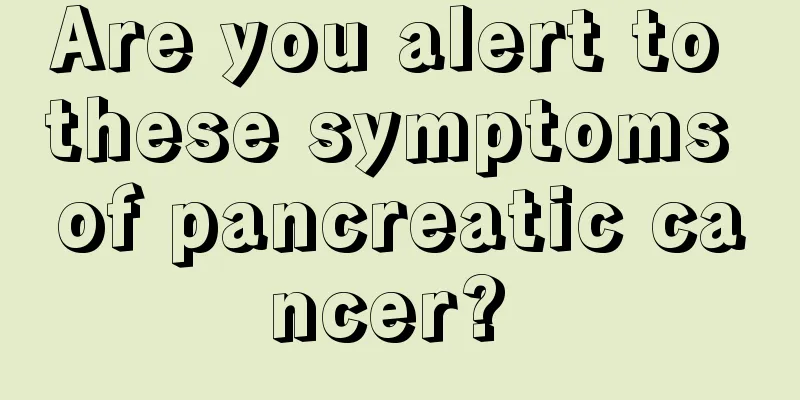What medicine can cure the pain in three places in the early stage of nasopharyngeal cancer quickly?

|
If pain occurs in three places in the early stage of nasopharyngeal cancer, you should seek medical attention in time and receive treatment according to the doctor's advice after a clear diagnosis. The pain of nasopharyngeal cancer may be related to tumor compression, inflammation or nerve involvement, and drug treatment needs to be combined with specific causes and symptoms. 1. Causes of early pain in nasopharyngeal cancer The three common pains in the early stage of nasopharyngeal carcinoma include headache, neck pain and ear pain. Headache may be related to the tumor compressing the skull base nerves or causing increased intracranial pressure; neck pain is usually caused by swollen cervical lymph nodes; ear pain may be caused by the tumor invading the Eustachian tube or middle ear structure. The appearance of these symptoms indicates that the tumor may have affected the surrounding tissues. 2. Choice of drug treatment For early pain of nasopharyngeal carcinoma, drug treatment should be carried out under the guidance of a doctor. Commonly used drugs include: Pain relievers: Nonsteroidal anti-inflammatory drugs such as ibuprofen and acetaminophen can relieve mild to moderate pain. Anti-inflammatory drugs: such as glucocorticoids such as dexamethasone, can reduce the inflammatory response and nerve compression symptoms caused by the tumor. Targeted drugs: such as cetuximab, which is suitable for certain types of nasopharyngeal cancer and can inhibit tumor growth and relieve related symptoms. 3. The importance of comprehensive treatment The treatment of nasopharyngeal carcinoma not only relies on drugs, but also requires a combination of radiotherapy, chemotherapy and other comprehensive methods. Radiotherapy is the main treatment for nasopharyngeal carcinoma, which can effectively control tumor growth; chemotherapy is used for advanced or recurrent cases, and commonly used drugs include cisplatin, paclitaxel, etc. Traditional Chinese medicine such as astragalus and ganoderma lucidum can also be used as auxiliary treatments to help improve immunity. 4. Lifestyle and diet recommendations During treatment, patients should pay attention to diet and choose easily digestible and nutritious foods, such as lean meat, fish, eggs, and fresh vegetables and fruits. Avoid spicy, greasy, and irritating foods to avoid aggravating symptoms. At the same time, maintaining a good attitude and getting enough rest will help improve the treatment effect. The treatment of early pain in nasopharyngeal carcinoma requires a combination of medication, radiotherapy, chemotherapy and other methods. Patients should develop a personalized treatment plan under the guidance of a doctor. Early detection and standardized treatment are the key to improving the cure rate. It is recommended to seek medical attention in time when relevant symptoms occur to avoid delaying the disease. |
<<: Can normal color Doppler ultrasound rule out bladder cancer?
>>: What are the causes of renal hamartoma?
Recommend
How to treat fibroids so that they heal quickly
In life, if you have fibroids, you must see a doc...
What are the dangers of early stage tongue cancer
In daily diet, people are too eager to get tongue...
Will my father's prostate cancer be inherited?
Prostate cancer is a common male disease. Patient...
What are the ways to eat fresh peach gum?
The way to eat fresh peach gum is actually simila...
How to expel kidney stones more effectively
If you suffer from kidney stones, you must pay at...
The best way to prevent mosquitoes at night
Many people always encounter mosquitoes when they...
What is the reason for feeling sleepy in the afternoon
Feeling sleepy is a relatively common condition. ...
What is the most effective way to remove sweat stains from clothes?
The human body sweats easily, and once the sweat ...
If a tooth is broken, will it hurt if I make a hole to reduce inflammation and then fill it?
Teeth, as the hardest part of the human body, can...
What is the reason for the pain in my ears?
The ear is a very important organ in our body. On...
Transparent blisters grow on the inner wall of the mouth
Transparent blisters on the inner wall of the mou...
Breast cancer patients need to know some examination methods to detect the disease in time
The appearance of breast cancer has long endanger...
What should I do if my gums are swollen and painful due to cold?
In daily life, there are many reasons that can ca...
Can fresh dandelions be soaked in water and drunk?
Fresh dandelions generally cannot be soaked in wa...
I have stomachache, diarrhea and itchiness all over my body, what's going on?
"Diarrhea" is very common in life. Acut...









